You may not find this terribly rewarding unless you're included here, so this is a good time for casual and random browsers to turn back before they get too caught up in the sweep and majesty of the proceedings and can't let go.
Two days on the Upper Mississippi

Welcome back to the lake, 29 June 2017 (baggage arrived two days later)
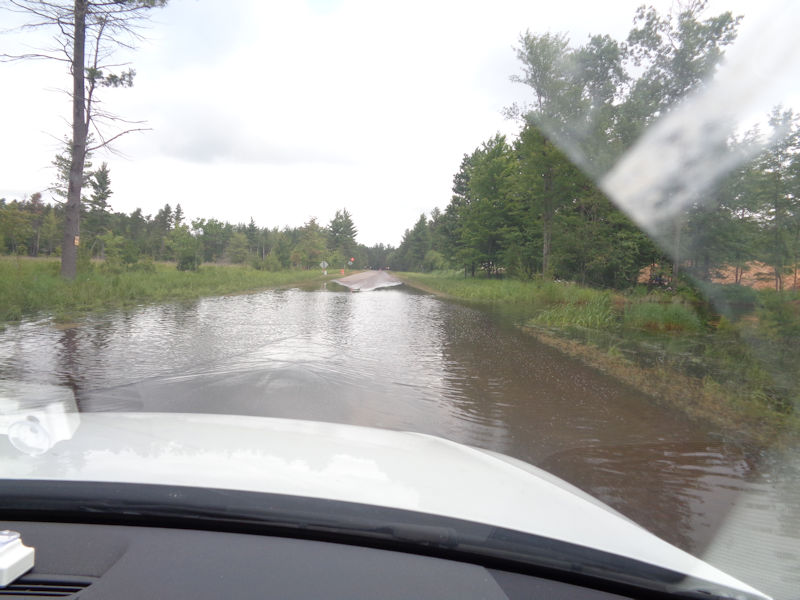
It's been a rainy June in northern Wisconsin. We're off for southern Wisconsin next, to visit the Ramsar Site called the 'Upper Mississippi River Floodplain Wetland', 5 July 2017.
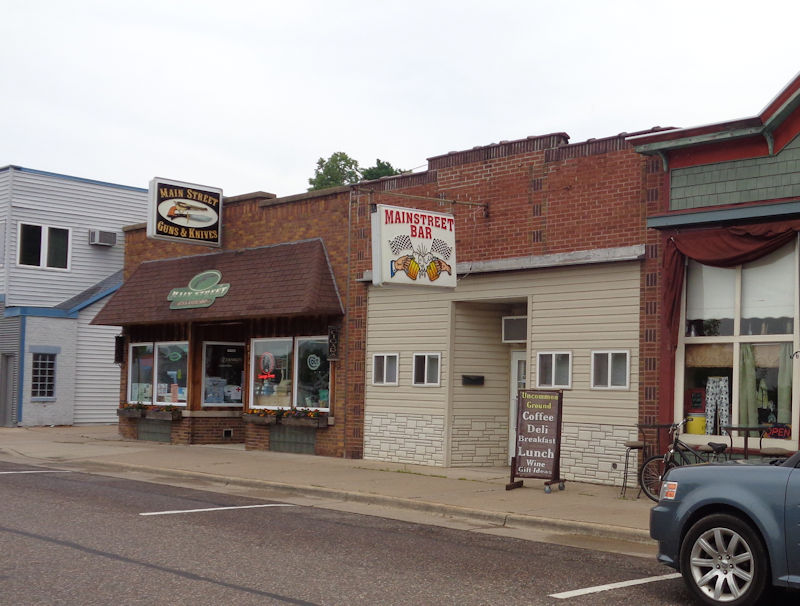
Main Street USA (Medford, WI, Rte 13)
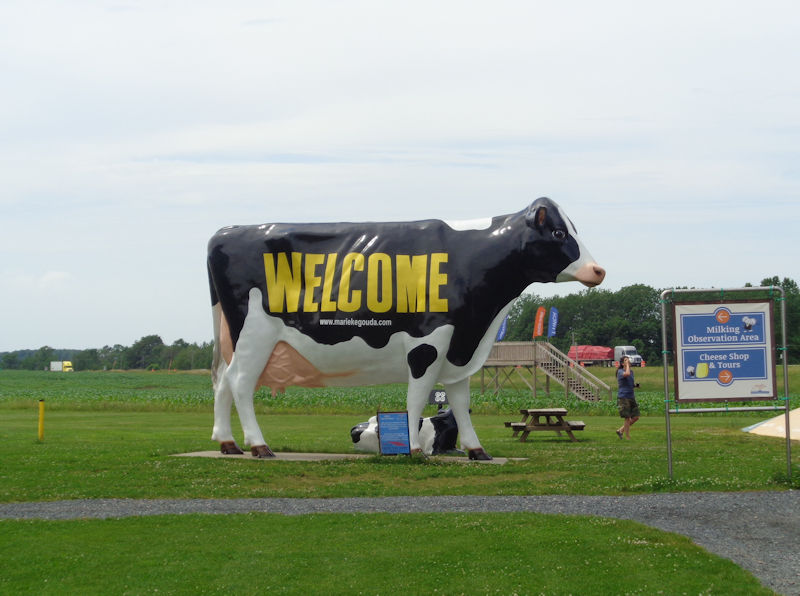
We've just time for an obligatory stop at Marieka Gouda's artisanal cheese mecca in Thorp, WI. Since 2003 the Penterman family, immigrants from The Netherlands, have brought Dutch cheese-making skills to the USA, with an award winning establishment that has apparently become legendary.

Marieka's shop and restaurant, opened in 2013

It's good to get the legal details out of the way, first thing.
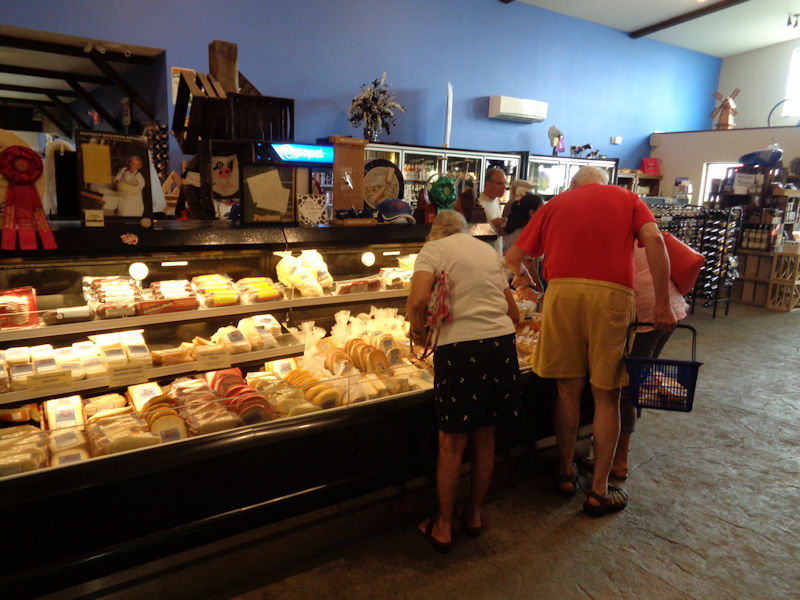
Our party is stocking up.

Plenty to go around
Upper Mississippi River NWFR

The Upper Mississippi River National Wildlife and Fish Refuge (NWFR), established in 1924, extends along 261 miles (420km) of the Mississippi River through four US states (Minnesota, Wisconsin, Iowa, and Illinois) and covers more than 97,000 hectares or 240,000 acres. It has been designated as a Wetland of International Importance under the Ramsar Convention on Wetlands and as a globally Important Bird Area by BirdLife International.

Stretches along the river are identified by a system of 26 locks and dams, mostly established in the 1930s, that extend from No. 1 near Minneapolis/St-Paul to No. 26 at East Alton, Illinois, near St Louis, and the Refuge covers the long stretch between the confluence of the Chippewa River in the north and Rock Island, Illinois. The stretches of river between the locks and dams are numbered as 'pools' by the same system, and this is the US Fish and Wildlife Service (USFWS) headquarters for managing Pools 7 and 8.

It's located in the Brice Prairie area of Onalaska, Wisconsin, just north of La Crosse, on the shore of Lake Onalaska, which is part of the Mississippi River at Pool 7.
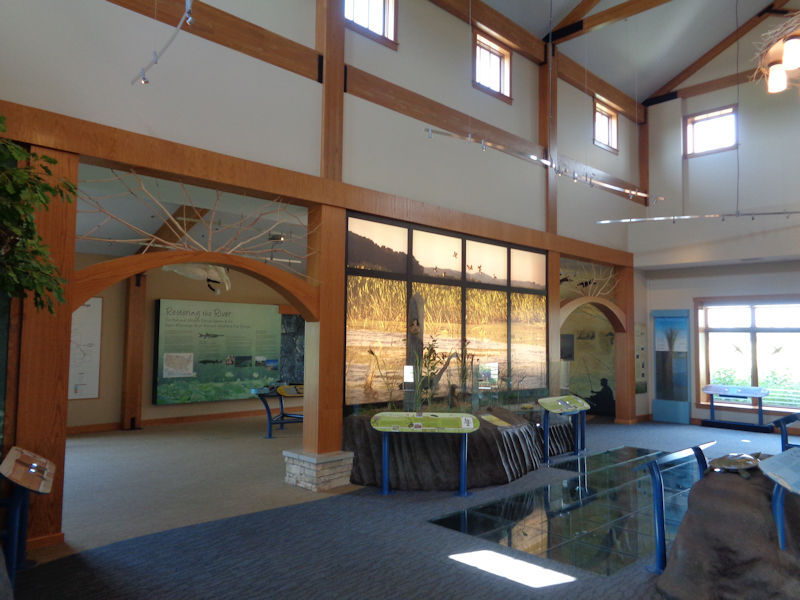
For the past few years, we've been visiting Ramsar Sites in Wisconsin along with staff from the Wisconsin Wetlands Association, which has been making a campaign of pushing for the US designation of some of the state's "Wetland Gems" as Wetlands of International Importance.

In summer 2014, we visited the Penokee Hills and Kakagon and Bad River Sloughs Ramsar Site on Lake Superior, part of the reservation of the Bad River Band of the Lake Superior Chippewa tribe. In 2015, we toured the Door Peninsula Coastal Wetlands Ramsar Site on the eastern side of the state, and in 2016, both the Goose Pond Sanctuary and the Horicon Marsh Ramsar Site towards the middle of the state.

The USFWS visitors centre in Onalaska and a book store operated by the Prairie Wind Nature Store

Perhaps the most compelling feature of the Upper Mississippi NWFR, in addition to its impressive records of waterbird and fish populations, is that the overall management plans involve the collaborative activities of a good number of federal and state government agencies and NGOs (like the 'Friends of Pools 7 and 8').
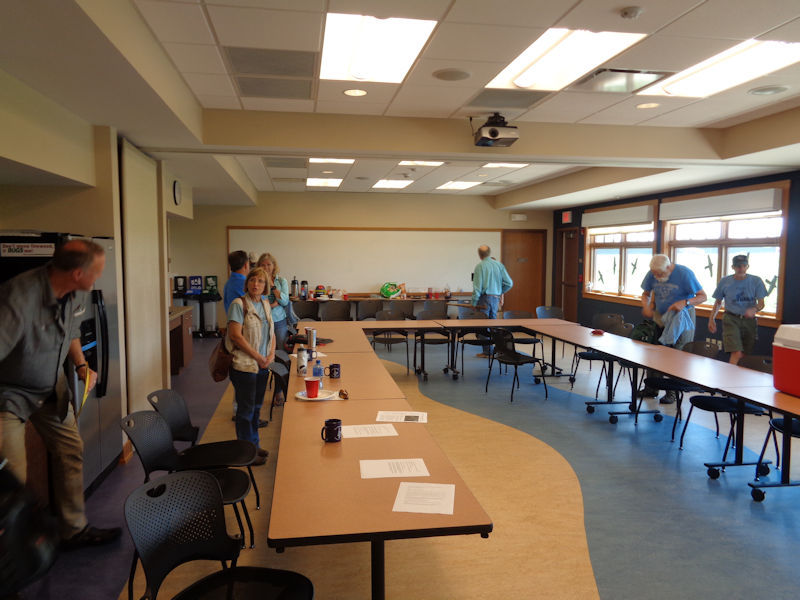
Lunchtime is just about over, after a full morning of presentations by personnel from the US Army Corps of Engineers, the US Fish and Wildlife Service, the Wisconsin Department of Natural Resources (DNR), the US Geological Survey (USGS), The Nature Conservancy, and the La Crosse County Conservation Alliance. The session and subsequent trips onto the river were set up for us by John Wetzel (on the far right), a retired DNR scientist and current board member of the Wetlands Association, who seems to have been instrumental in the careers of almost all of the speakers.

Presentation topics included the history of the area and its conservation efforts, the Corps of Engineers' role over the years in maintaining the navigable channel, the monitoring and encouragement of wildlife, river water quality, current restoration programmes and construction of artificial islands, and most importantly, the collaboration of the agencies.
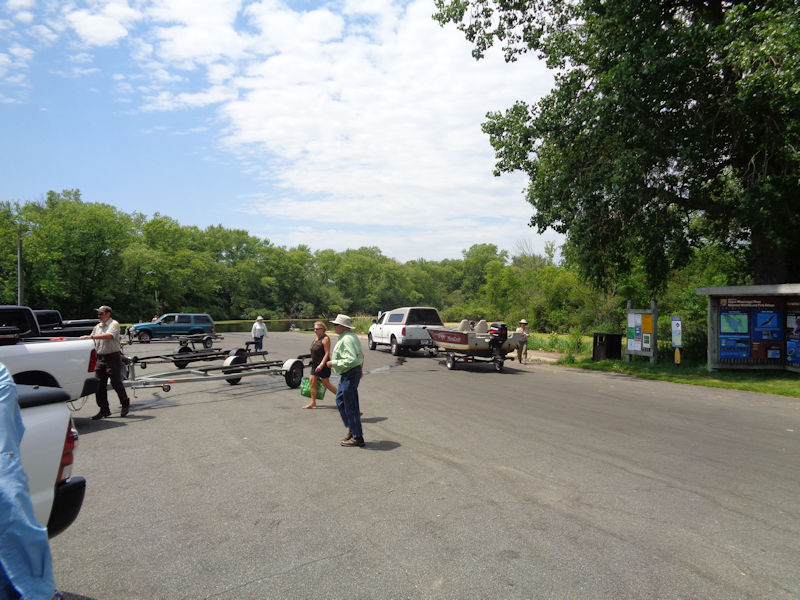
The afternoon programme includes on-the-ground (or rather -water) illustrations of the topics explained in the morning.
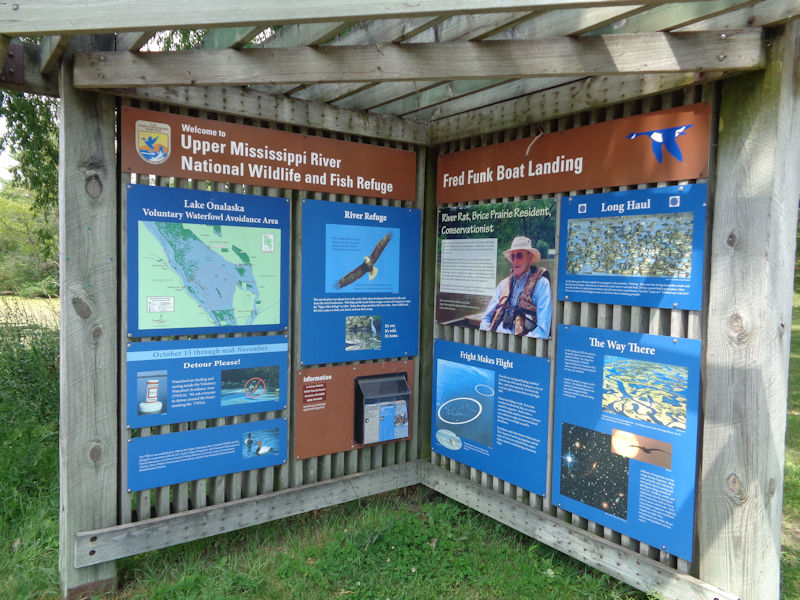
We're leaving from the nearby Fred Funk Boat Landing (on County Road ZB!), connected to a vast wetland at the north end of Lake Onalaska.

Gentlemen, start your engines. Ladies, rather.

Oh my
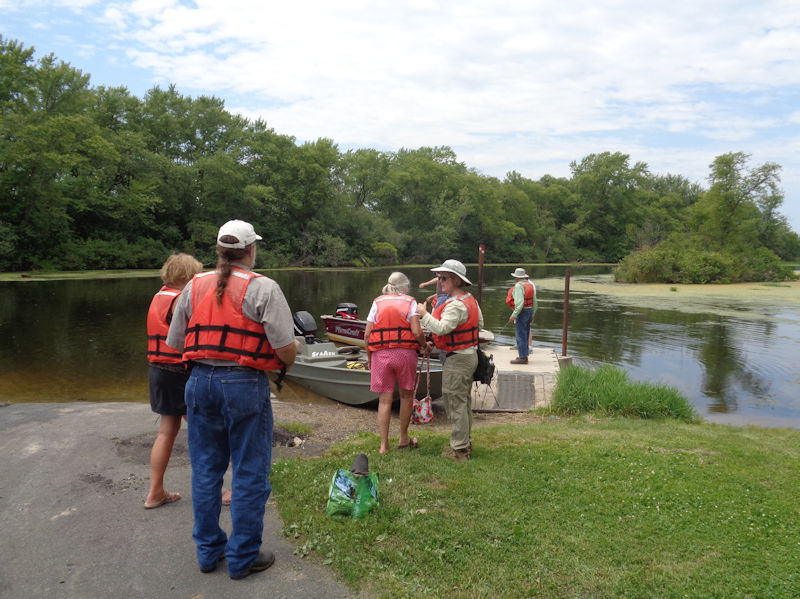
Kristin and Joellen with Tracy Hames and Katie Beilfuss, Executive Director and Outreach Programs Director respectively at the Wisconsin Wetlands Association; on the dock, Mark Martin, retired from the Wisconsin DNR and co-manager with Sue Foote-Martin of the Madison Audubon Goose Pond Sanctuary, frequent companions on our wetland study tours in Wisconsin.

Preliminary explanations from John Wetzel, who organized the tour for us and the Association, after which . . .
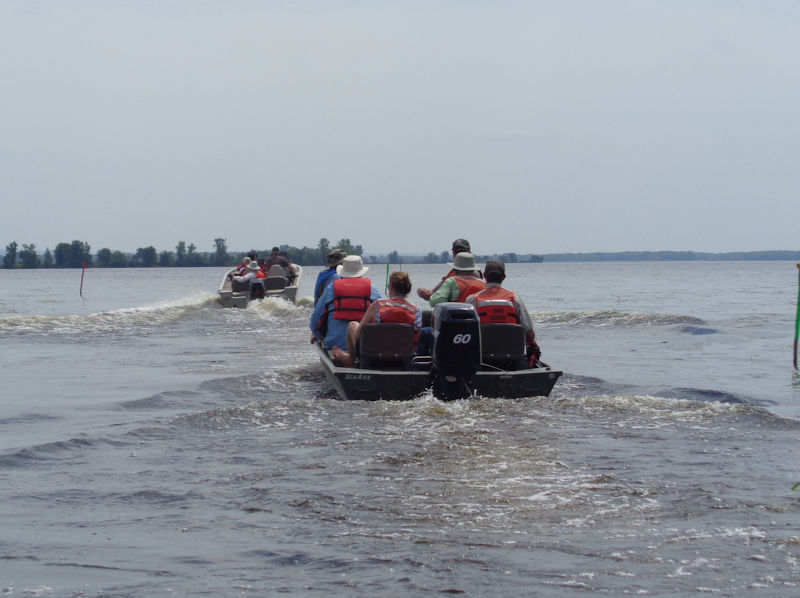
. . . we're off.
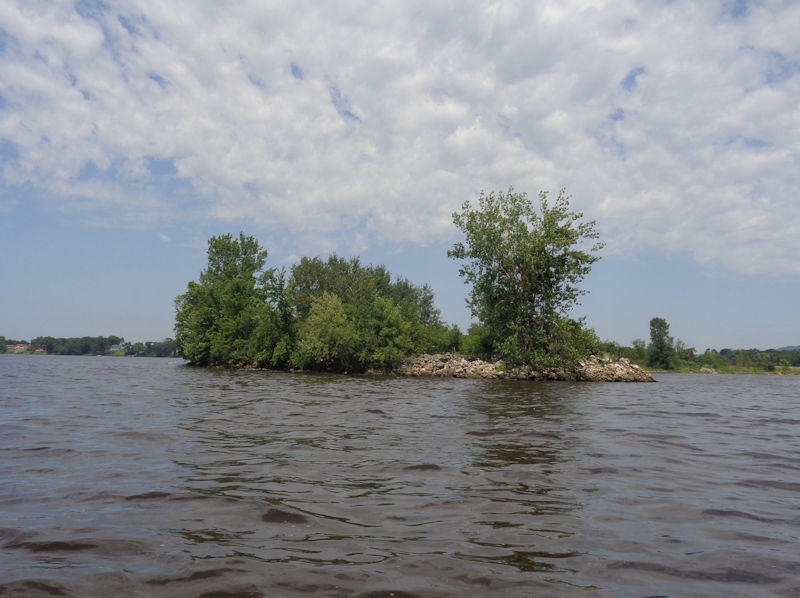
At the moment, we're viewing constructed islands and the selective use of rip-rap; soon we'll be learning about wing dams for helping to control the effects of river currents.

A quick head count, mostly members of our party with a few helpful additionals (from left): Tim Miller, USFWS manager of the Brice Prairie visitors centre; Elke; Mark Martin; Marc Schultz, retired but active in conservation organizations; Joellen in the background; Cousin Rob, and our own Kristin.

Tracy Hames and Lock and Dam no. 7 from the north
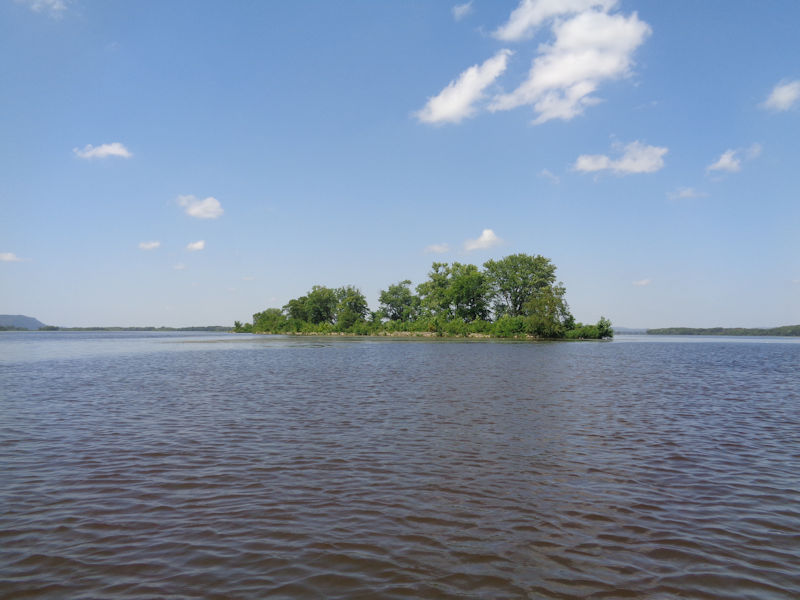
A strategically constructed island just above the lock and dam

The intricate mechanisms of the dam were carefully explained to us, but went right over my head.
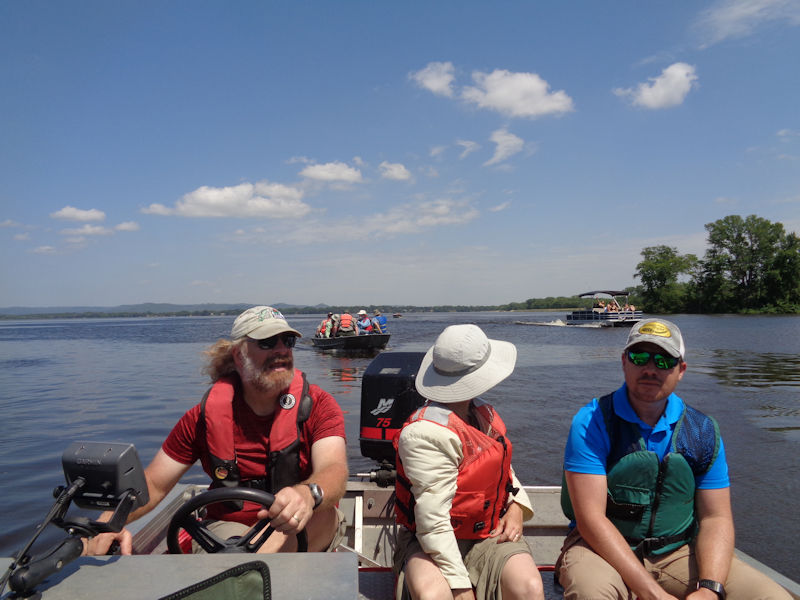
Jeff Janvrin and Shawn Giblin (I think) of the DNR, with Katie Beilfuss of the WWA

A constructed island built up from the 'spoils' from the Corps of Engineers' dredging of the main river channel . . .

. . . now in use for public recreation . . .
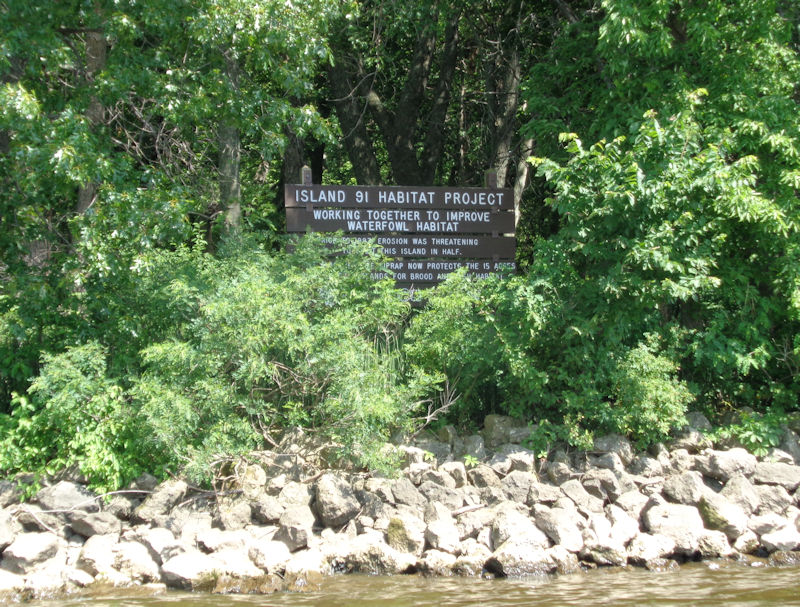
. . . and for waterbird habitat.
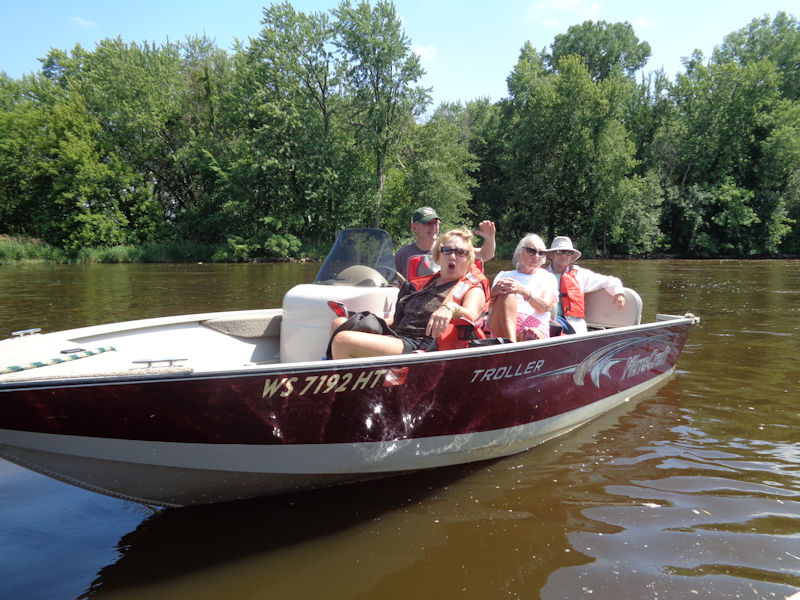
-- Hey you, back off!
Marc Schultz, Kristin, Joellen, and Sue Foote-Martin

John Wetzel, Randy Urich of the Corps of Engineers, Rob, Mark, and Elke, with Tim Miller driving the USFWS boat
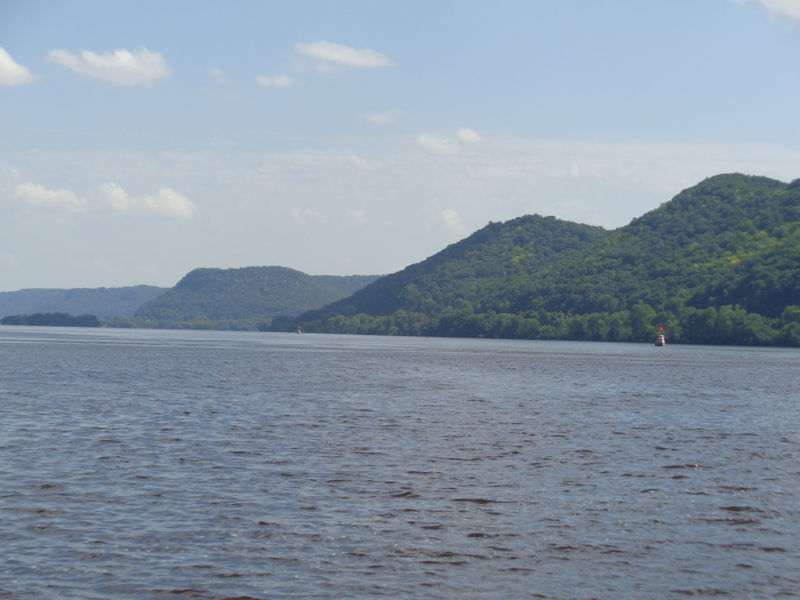
Bluffs on the Minnesota side of the river
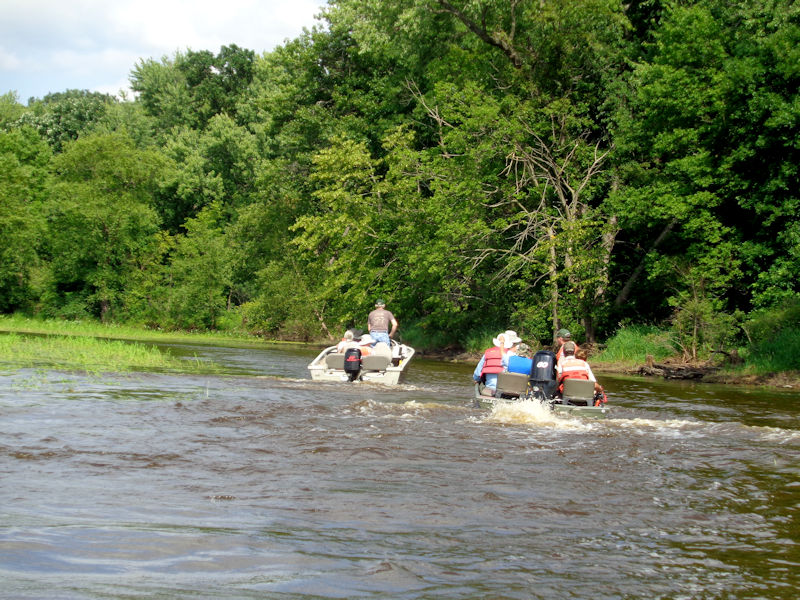
Our guides know a short-cut through the swamp, but don't seem suitably confident.

Propellers up!
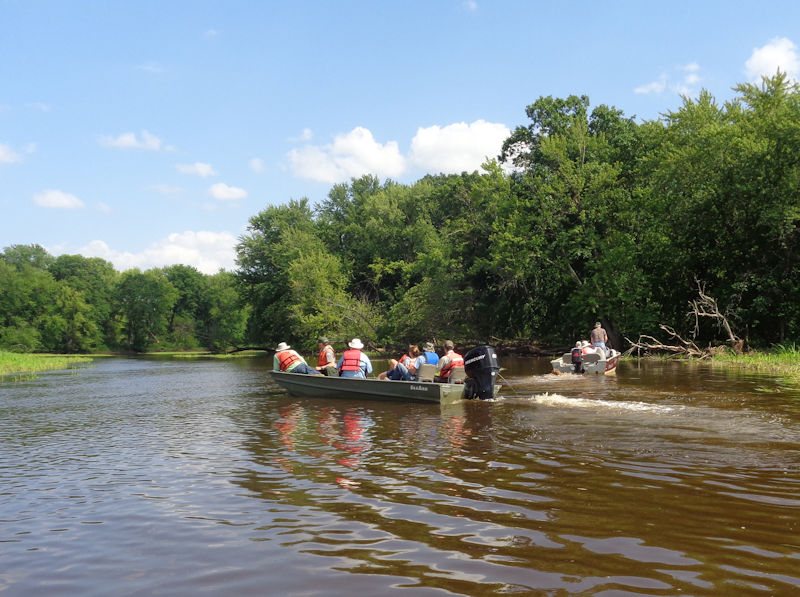
Divergent opinions

Sustained vigilance
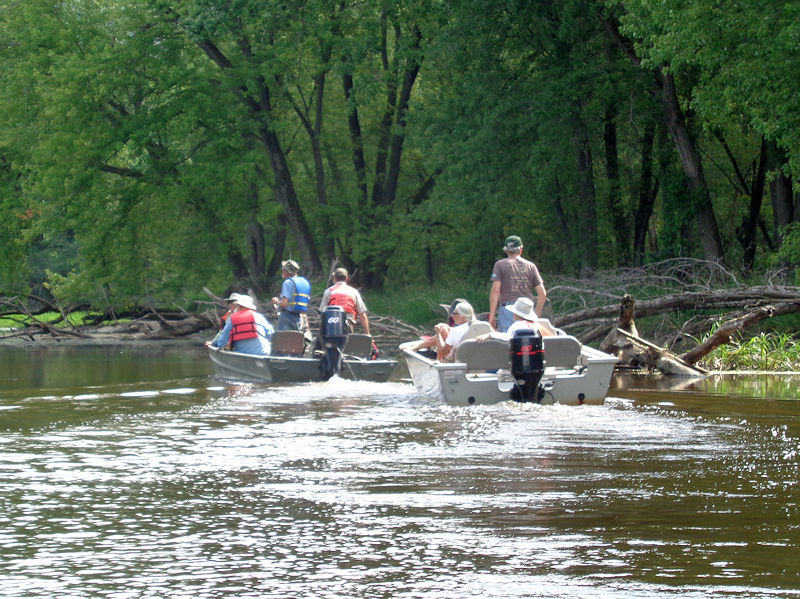
Proceeding by inches

When all else fails, get out the poles.

Success, and a sense of satisfaction at a job well done
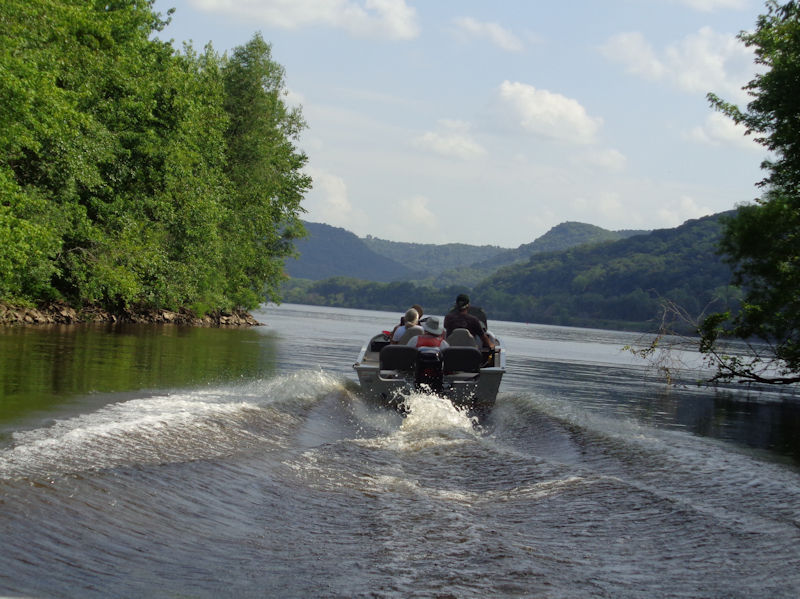
Out into open water again

Back to the Fred Funk Landing
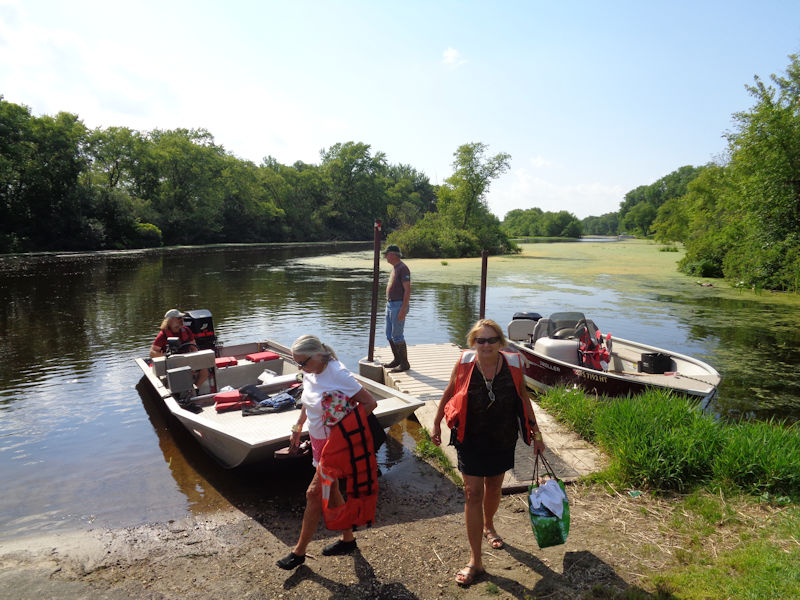
A long afternoon on the river, and an early start tomorrow -- this time, for Pool 8.
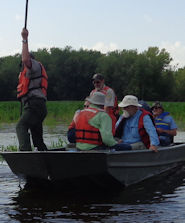 Dwight Peck's personal website
Dwight Peck's personal website































































































































































